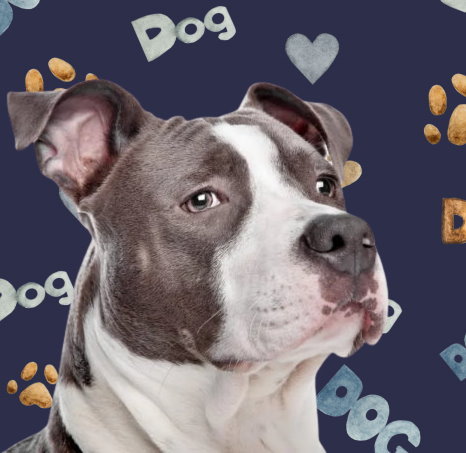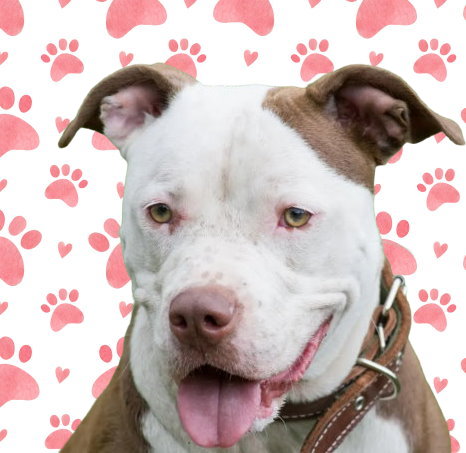Welcome to Dog Training Newbies !
Welcome to Dog Training Newbies !

Pit Bull Terriers are known for their strength, loyalty, and affectionate nature. Despite their tough exterior, many Pit Bulls are surprisingly sensitive, particularly to loud noises. Noise sensitivity in dogs can manifest as fear, anxiety, or stress when exposed to certain sounds. This condition can be particularly challenging for Pit Bull Terriers, as their reactions may lead to destructive behavior, excessive barking, or even attempts to escape. Understanding the causes of noise sensitivity and learning effective management and training strategies are essential for helping your Pit Bull live a calm and comfortable life.
UNDERSTANDING NOISE SENSITIVITY IN PIT BULL TERRIERS
Noise sensitivity, also known as noise phobia, can be triggered by a variety of sounds. Common triggers include thunderstorms, fireworks, sirens, and even household noises like vacuum cleaners or blenders. For Pit Bull Terriers, this sensitivity can be exacerbated by their natural alertness and protective instincts. A Pit Bull that is already on high alert may be more likely to react strongly to sudden or loud noises.
The causes of noise sensitivity are multifaceted. Genetics play a significant role; some dogs are simply more predisposed to anxiety than others. Environmental factors, such as a lack of proper socialization during the early stages of life, can also contribute. If a Pit Bull has had negative experiences associated with certain sounds, this can reinforce their fear and lead to heightened sensitivity.
In addition to genetic and environmental factors, health issues can contribute to noise sensitivity. Dogs with hearing loss or other sensory impairments may be more startled by loud or sudden noises. Pain from conditions like arthritis or other chronic ailments can also make a dog more reactive.
MANAGEMENT TECHNIQUES
Managing noise sensitivity in Pit Bull Terriers requires a multi-faceted approach. The goal is to create a safe, comforting environment that minimizes the dog’s exposure to triggering sounds and helps them cope when they do occur.
One effective management technique is to provide a safe space for your dog during noisy events. This could be a quiet room with dim lighting, soft bedding, and familiar objects that your Pit Bull associates with comfort and security. Some dogs find comfort in being in a small, enclosed space, like a crate, where they feel protected. Additionally, playing calming music or using a white noise machine can help drown out the distressing sounds.
Desensitization and counter-conditioning are key strategies in managing noise sensitivity. This process involves gradually exposing your dog to the noise at a low volume while providing positive reinforcement, such as treats or affection, to help them associate the noise with something positive. Over time, the volume is slowly increased as the dog becomes more comfortable. This method can be highly effective but requires patience and consistency.
For dogs with severe noise sensitivity, it may be necessary to consult with a veterinarian about anti-anxiety medications or supplements. These can help reduce your Pit Bull's overall anxiety levels, making them more receptive to management and training techniques.


TRAINING STRATEGIES
Training is an essential component of helping a noise-sensitive Pit Bull Terrier manage their anxiety. Positive reinforcement is crucial in building your dog’s confidence and helping them develop coping mechanisms for dealing with noise triggers.
Basic obedience training provides a strong foundation. Commands such as “sit,” “stay,” and “come” can be incredibly useful in managing your dog’s reaction to noises. Teaching your dog to focus on you during stressful situations, using commands like “watch me” or “look,” can help redirect their attention away from the noise and onto you, their source of comfort and security.
Training your Pit Bull to settle on command is another useful strategy. This involves teaching your dog to go to a specific spot, such as their bed or a mat, and lie down calmly when they hear a noise. Rewarding your dog for staying calm in this designated spot helps reinforce the behavior and provides them with a sense of control in stressful situations.
Socialization is also important. Exposing your Pit Bull to a variety of environments, people, and other animals in a controlled and positive manner can help reduce their overall anxiety and make them less reactive to new or unfamiliar noises. Start with less stressful environments and gradually introduce more challenging situations as your dog becomes more confident.
In some cases, working with a professional dog trainer or behaviorist who specializes in anxiety disorders can be beneficial. They can provide personalized training plans and techniques tailored to your Pit Bull’s specific needs.
LONG-TERM CONSIDERATIONS
Managing and training a noise-sensitive Pit Bull Terrier is a long-term commitment that requires patience, consistency, and compassion. It’s important to remember that progress may be slow, and setbacks can occur, especially if your dog is exposed to a particularly loud or unexpected noise. During these times, it's crucial to remain calm and continue with the established management and training techniques.
Maintaining your dog’s overall health is also essential in managing noise sensitivity. Regular veterinary check-ups can help identify and address any underlying health issues that may be contributing to your dog’s anxiety. Ensuring that your Pit Bull receives a balanced diet, regular exercise, and mental stimulation will also help keep them healthy and less prone to anxiety.
In conclusion, while noise sensitivity in Pit Bull Terriers can be challenging, it is manageable with the right approach. By understanding the causes, providing a safe environment, and implementing effective training strategies, you can help your Pit Bull live a more relaxed and enjoyable life.